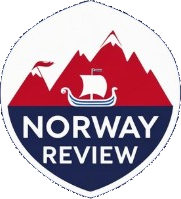For years, foreign universities have fostered a vibrant professional environment dedicated to the study of Norwegian language and culture.
Currently, around 5,000 to 6,000 students are engaged in learning Norwegian across approximately 30 institutions worldwide.
This initiative aims to enrich the educational fabric of Norwegian language, literature, and culture in higher education institutions beyond Norway’s borders.
A key component of this program is the support for foreign lectureships, which enables Norwegians to instruct students in the Norwegian language at universities around the world.
— Norway Will Bear the Brunt
When the autumn state budget for the upcoming year was unveiled, it contained a few sentences that sent shockwaves through supporters of the initiative. The Ministry of Education proposed to phase out The Scheme for Norwegian Studies Abroad over the next two years. By 2026, the budget will be slashed by NOK 4.5 million, ultimately leading to its complete cessation in 2027.
“This is a great loss, not only for us but also for Norway,” lamented Associate Professor Paulina Horbowicz, speaking to Khrono.
Horbowicz is affiliated with the Scandinavian Institute in Poznan, Poland, where she obtained her doctorate in Norwegian language. Last year, the institute proudly celebrated its 50th anniversary of Scandinavian language education.
“If this scheme is discontinued, it will weaken the standing of the Norwegian language and culture throughout Europe, and in the long run, it will be Norway that suffers the most. This program has been essential for cultivating interpreters and translators who facilitate communication between nations, thereby fostering a deeper understanding among diverse cultures.”
foreign language
Linguists Warn Against Marginalizing Foreign Languages in Schools
Fascinated by Norwegian Culture
Having worked with the Norwegian language for over two decades, Horbowicz reflects on her own journey as a student who sought out a unique linguistic challenge. Although she had never set foot in Norway, the allure of understanding a new culture captivated her.
“Many students I encounter are eager to immerse themselves in both language and culture. They are enchanted by Norwegian literature, music, and film. Additionally, some are motivated by personal connections, like family members who have lived or worked in Norway,” she shared.
Numerous academic colleagues have reached out to Khrono, expressing their disbelief at the proposed termination of this crucial program. Many have served as Norwegian lecturers throughout Europe and maintain strong connections with Norwegian communities at their institutions.
They emphasize that several former students and colleagues have emerged as respected voices for Norwegian literature, having translated works by Nobel laureate Jon Fosse, among others.
— Lecturers Bring Language to Life
At Adam Mickiewicz University in Poznan, the Department of Scandinavian Studies thrives, according to Horbowicz. The institute sees a steady influx of applicants, suggesting it is unlikely to vanish entirely, even if the program is terminated.
“However, the absence of a Norwegian lecturer will likely deter students from applying to our program. Having visiting lecturers enhances the quality of education and ensures contact with a living language,” she noted.
The benefits of inviting Norwegian lecturers are numerous, according to Horbowicz.
“These lecturers provide insights into current events and cultural relevance in Norway, enriching our students’ understanding. Without that firsthand experience, grasping the societal context becomes challenging. Language proficiency must go hand in hand with a broader cultural awareness.”
literature
She is Pursuing a Doctorate on Henrik Ibsen — in France
Fascinated by Ibsen
Third-year student Olga Mierzejewska is currently studying Norwegian at Adam Mickiewicz University and is on exchange in Norway.
Her interest in the language sparked during upper secondary school when she encountered a Polish adaptation of Ibsen’s play, An Enemy of the People.
“It left a lasting impression on me, prompting a desire to learn Norwegian so I could enjoy the original texts,” she explained.
As she embarks on writing her bachelor’s thesis, Mierzejewska hopes to utilize her language skills in her future career, potentially as a translator or interpreter. With a wealth of possibilities in Norway, she remains open-minded.
Having Norwegian lecturers at her Polish university has significantly enhanced her educational experience.
“Native-speaking instructors have greatly improved the quality of our classes. Not everyone has the opportunity to study abroad; their presence has instilled a tremendous confidence in me. Now that I am in Bergen, I am eager to speak Norwegian as much as possible.”
— A Pillar for Norwegian Culture
Mierzejewska issues a poignant warning about potentially dismantling a program that has facilitated Norwegian education in multiple countries.
“Universities could deem Norwegian language instruction too costly and ultimately eliminate the offerings. We have long understood that cultural diversity is a core value in Norway. This initiative represents a vital means of preserving Norwegian culture and fostering more experts in fields like Norwegian literature—a loss that would resonate far and wide, for both us and Norway.”
The British Academy
Kirsi Gains Access to the Vatican State Archives
— A Need for Prioritization
Khrono reached out to the Ministry of Education to understand the rationale behind the decision to terminate The Scheme for Knowledge of Norway Abroad. State Secretary Eileen Fugelsnes shared the following insight in an email:
“The government has proposed a budget aimed at ensuring solid financial management. Looking ahead, our fiscal flexibility is expected to diminish, and we must prioritize more effectively. Consequently, not all commendable initiatives can be included in the budget. We have emphasized the need to maintain strong support for research and higher education,” she stated.
– A Decision We May Regret
Paulina Horbowicz, who previously worked at the University of the Interior, reflects on her time there, noting a strong desire to enhance knowledge within the university sector and bolster research capacity. This, she argues, is precisely what the scheme for Norwegian knowledge abroad has facilitated.
“This initiative has opened avenues for those wishing to engage with the Norwegian language internationally and fostered collaborative research projects,” she said.
Horbowicz advocates for continued funding for the program.
“Preserving support for visiting lecturers, various scholarship opportunities, and event sponsorship is crucial. The ramifications of this decision are significant and could lead to regret for Norway in the future.”

